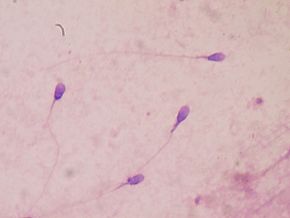 Ultra-processed foods are linked to many health harms, including heart disease and type 2 diabetes. A recent large study of women found that they are also linked to colon adenomas (polyps) - which are precursors to colorectal cancer. The more ultra-processed foods in the diet, the higher the risk of polyps (adenomas).
Ultra-processed foods are linked to many health harms, including heart disease and type 2 diabetes. A recent large study of women found that they are also linked to colon adenomas (polyps) - which are precursors to colorectal cancer. The more ultra-processed foods in the diet, the higher the risk of polyps (adenomas).
There was a 45% greater risk of polyps in the group eating the most ultra-processed foods (about 10 servings per day), when compared to those eating the fewest ultra-processed foods (about 3 servings per day).
The researchers point out that the rise in the rates of colorectal cancer has occurred with the rise of ultra-processed food consumption. Currently, more than 50% of the diet of Americans consists of ultra-processed foods.
Other researchers suggest that there may be other contributing factors to the rise in colorectal cancer, such as low fiber in the diet (typical Western diet), and microplastics in the environment, which are found in our food, water, and beverages.
Bottom line: Eat a diet rich in whole grains, fruits, vegetables, nuts, seeds, and legumes. This will increase the amount of fiber in your diet, and lower your intake of ultra-processed foods. Read ingredient labels and if there is something that normally is not found in a person's kitchen, then it is ultra-processed.
Examples of ingredients found in ultra-processed foods: emulsifiers, carrageenan, mono- and diglycerides, soy lecithin, polysorbate, cellulose, colors, titanium dioxide, high fructose corn syrup, hydrogenated oils, dextrose, whey protein, nitrates, artificial flavors, natural flavors, colors, etc.
From Medical Xpress: Ultra-processed foods tied to higher rates of early-onset colorectal cancer precursors in adults
Colorectal cancer used to be associated with old age, but diagnoses have become increasingly common in adults aged 50 or younger particularly in high-income countries like the United States. The reason for this trend is unclear, but a new study led by Mass General Brigham researchers, as part of the Cancer Grand Challenges PROSPECT team, suggests an important link to ultra-processed foods that merits closer investigation. ...continue reading "Ultra-Processed Foods and Colon Polyps"
 The health benefits of regularly drinking coffee keep increasing. A recent study confirmed that consuming coffee on a regular basis reduces the incidence of liver disease and slows the progression of several liver diseases.
The health benefits of regularly drinking coffee keep increasing. A recent study confirmed that consuming coffee on a regular basis reduces the incidence of liver disease and slows the progression of several liver diseases.

 Great news for cheese lovers! A recent study found regularly eating full-fat (high-fat) cheese and cream was associated with a lower risk of developing dementia. Some examples of full-fat cheese include cheddar, Swiss, Parmesan, Brie, Gouda, Provolone, Colby, Havarti, Mozzarella (full-fat), and cream cheese.
Great news for cheese lovers! A recent study found regularly eating full-fat (high-fat) cheese and cream was associated with a lower risk of developing dementia. Some examples of full-fat cheese include cheddar, Swiss, Parmesan, Brie, Gouda, Provolone, Colby, Havarti, Mozzarella (full-fat), and cream cheese. It turns out that wearing silicone wristbands is a great way to measure a person's exposure to pesticides that are inhaled or absorbed in the skin - whether you are farmer, living near pesticide treated farm fields, a pet owner, or a member of the general population (consumer). Another source of pesticides is food and water, but the silicone wristbands don't measure that.
It turns out that wearing silicone wristbands is a great way to measure a person's exposure to pesticides that are inhaled or absorbed in the skin - whether you are farmer, living near pesticide treated farm fields, a pet owner, or a member of the general population (consumer). Another source of pesticides is food and water, but the silicone wristbands don't measure that.

 We all know sitting too much is not good for our health. But for many of us, it's our reality - sit all day at work, and then come home and relax by sitting all evening. But there is some good news. A recent
We all know sitting too much is not good for our health. But for many of us, it's our reality - sit all day at work, and then come home and relax by sitting all evening. But there is some good news. A recent  For years it has been known that increasing the amount of fiber (and drinking enough fluids) in a person's diet helps to prevent constipation. A recent large multi-year
For years it has been known that increasing the amount of fiber (and drinking enough fluids) in a person's diet helps to prevent constipation. A recent large multi-year  Ultra-processed foods are linked to many
Ultra-processed foods are linked to many 